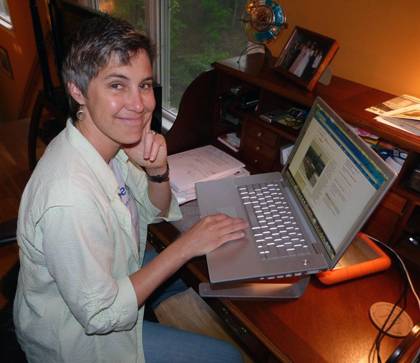Telecommuting Offers Balance And Savings For Duke Employees
Telecommuting enables employees to work from an off-site location

Each Wednesday and Thursday, Corky Safley makes a short "commute" down the hall to an office in his home and logs onto his workstation.
Safley, a senior systems programmer in the Pratt School of Engineering, started the practice of telecommuting in 2008, when gas prices in North Carolina spiked to nearly $4 a gallon and his commute from Wake Forest grew costly.
Read More"I get up, jump on the computer and start working earlier," he said. "I'll go from 8:30 a.m. to 6:30, sometimes 7 p.m. "I actually think I'm putting in more time because I don't have to leave my house early."
Telecommuting is a work arrangement that enables employees to work from another off-site location - typically home. Since working remotely may not be appropriate for all faculty and staff, Duke community members should discuss arrangements with a supervisor to determine the number of hours and days that would be best to telecommute.
"While I wish everyone could do it, not every job is designed for telecommuting," said Dexter Nolley, director of Staff and Labor Relations. "However, Duke, as an organization, supports the idea of telecommuting as one of many options that can help employees establish a strong work-life balance."
Safley discussed with his boss a trial of telecommuting once a week to see if it would be a fit. Because Safley's job can sometimes have him on call 24 hours a day to monitor and handle web server issues, he already had his home office set up to remotely connect to his work computer. He telecommutes twice a week, cutting carbon emissions and saving about $120 a month in fuel.
"Saving money is a big factor, but I also like the level of freedom I'm able to get to concentrate on tasks," Safley said. "It can help me be more productive because I'm able to find focus quicker."
Offering the alternative of telecommuting is one of the many aspects of Duke's flexible work options that helped the university become listed among Carolina Parent's top-50 family-friendly workplaces in North Carolina and garner awards like the Chronicle of Higher Education's "Great College to Work For."
August Burns, departmental business manager for the Fitzpatrick Institute for Photonics, works from home in Pittsboro once a week. She said cutting a commute to Durham lets her catch up on time-sensitive work in silence.
"I feel energized because I get two hours back into my day," she said. "It's rewarding because I'm able focus on clearing my inbox and finishing big projects."